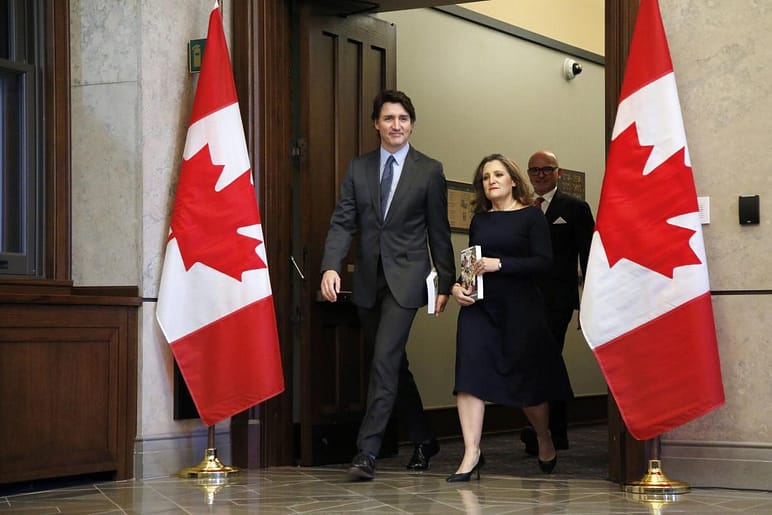(Bloomberg) — Prime Minister Justin Trudeau’s government will make 30-year mortgages available to all first-time buyers and to buyers of newly built homes as the embattled leader tries to win back the approval of younger Canadians.
Most Read from Bloomberg
The government will also begin allowing mortgage default insurance on homes with up to C$1.5 million ($1.1 million) in value, an increase from the current cap of C$1 million. That means buyers can bid on more expensive homes even if they have less than a 20% down payment — as long as they purchase insurance.
“We are now making the boldest mortgage reforms in decades to unlock homeownership for younger Canadians,” Finance Minister Chrystia Freeland said in a news release. The moves will take effect Dec. 15.
Canada cracked down on lengthy mortgage amortizations during the 2008 global financial crisis. Until this year, buyers who required government-backed default insurance on their mortgages were limited to 25-year amortizations.
Trudeau and Freeland took a step toward loosening that rule in April, allowing 30-year amortizations on insured mortgages only for first-time buyers purchasing newly built homes.
Monday’s announcement will significantly expand the pool of buyers who can access 30-year loans, which substantially lowers monthly payments.
Freeland noted that the insured-mortgage cap hadn’t been adjusted since 2012. Housing prices in Canada have doubled since then, with the average price in August reaching C$1.1 million in Toronto and C$1.3 million in Vancouver.
Trudeau is trailing far behind in the polls among many age groups, but younger voters — who were crucial to his first election victory in 2015 — have particularly turned on him. It is widely believed that Canada’s soaring housing costs, exacerbated by surging immigration rates, have played a major role in Trudeau’s struggles.
Both Trudeau and Freeland have made housing a central plank of their economic messaging this year, pledging numerous programs to boost construction and provide easier access to financing. But so far those moves have not improved Trudeau’s position in public opinion polling.
An election is scheduled for October 2025, but it could come any time in the next year, especially after Trudeau’s ally in Parliament pulled out of a power-sharing deal earlier this month.
If an election were held today, Pierre Poilievre’s Conservative Party would very likely win a majority government in parliament, given his dominant lead in the polls.
Voters in a Montreal district are casting ballots Monday to fill a vacant seat long held by Trudeau’s Liberals. The special election is viewed by many as a referendum on his leadership.
–With assistance from Erik Hertzberg.
Most Read from Bloomberg Businessweek
©2024 Bloomberg L.P.

